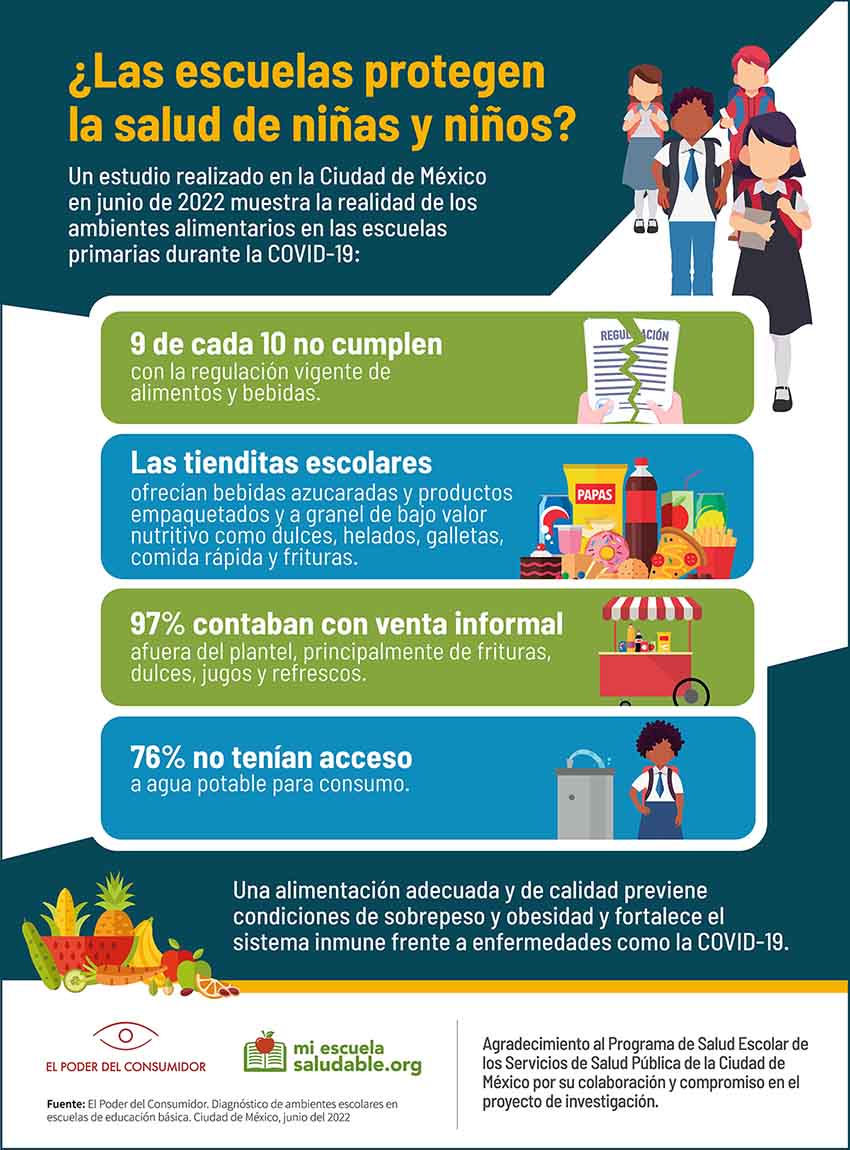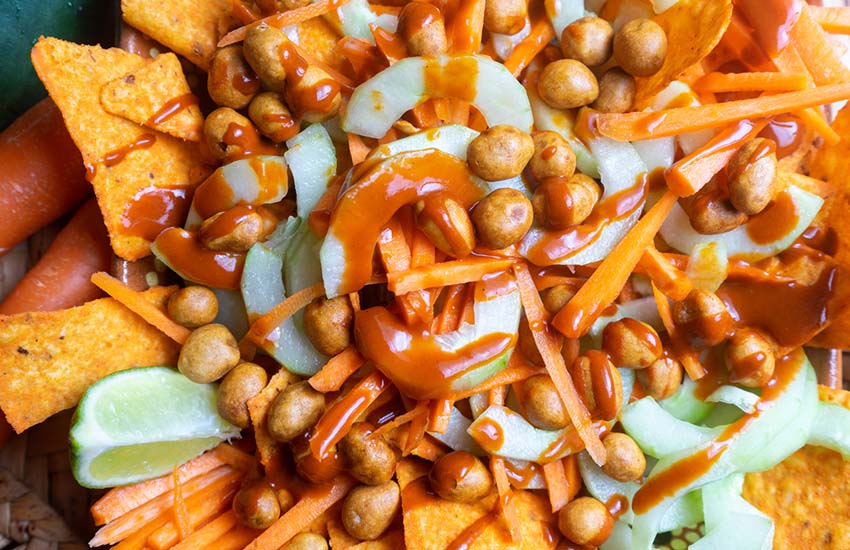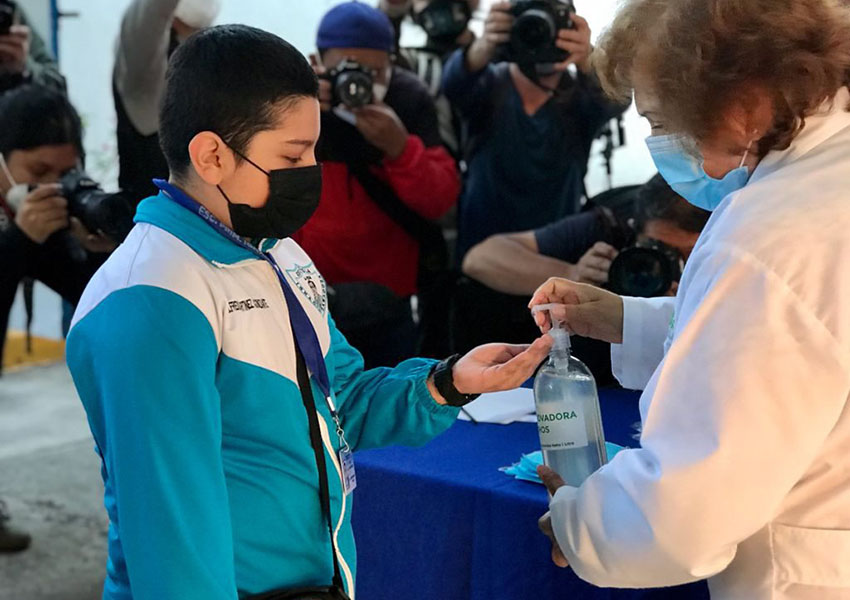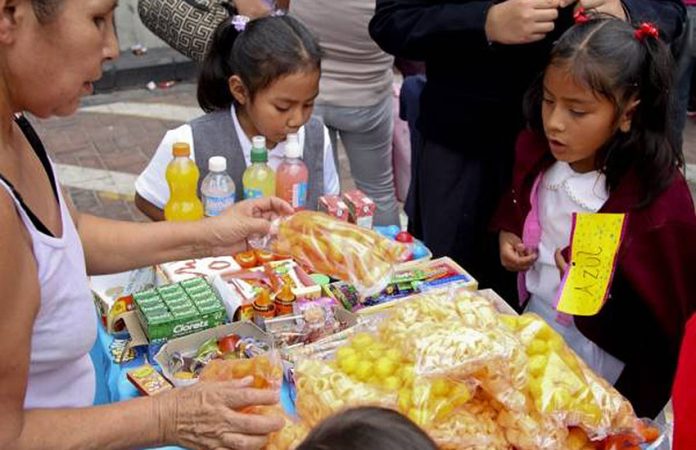Mexico City’s battle to get junk food out of its schools has been as successful as a bag of Doritos is healthy.
A recent report shows that approximately nine out of 10 primary schools in the capital city are failing to comply with regulations against selling junk food on campus. Potato and corn chips, cookies, paletas (popsicles), flavored milk and artificial juices, both with added sugar, are among the choices for many 6- to 12-year-old students.
In light of that, the civil organizations El Poder del Consumidor (Consumer Power), the Network for Children’s Rights in Mexico (REDIM) and ContraPESO Coalition are calling on legislators to take steps to transform schools into healthier places.
The study of 77 primary schools in Mexico City, carried out in June 2022, showed that the average child there consumes more than 550 calories of ultraprocessed products in a single school day. If things don’t change, it said, one of every two those students will develop diabetes in their lifetime.

The diabetes issue came to a head during the height of the COVID-19 pandemic, when it was revealed that many Mexicans who were dying of the disease had underlying conditions such as high blood pressure, obesity and diabetes. At 330,000 deaths, Mexico ranks fifth in the world for COVID-19 mortality, according to the World Health Organization.
The civil organizations are asking legislators to approve an initiative to reform the General Education Law and make food options at school healthier. They said the initiative is supported by the Ministry of Health, UNICEF, the Pan American Health Organization and other national and international organizations.
Mexico currently has 4 million school-age children classified as overweight or obese, El Poder del Consumidor said.
The report that focused on Mexico City showed that 73% of schools sold fast food, 75% offered sweet snacks, 40% peddled sugary drinks such as soda and 76% did not make drinking water available to their students.

Moreover, 90% of the schools had at least one, but usually more, vendors just outside the school gate selling items such as ice cream, candy, sticky-sweet tamarind sticks (banderillas) and sugary juices. Outside one school, a vendor was observed selling Dorilocos, a snack in which a bag of Doritos is split open and topped with ingredients such as gummy bears, pickled pig skin, hot sauce or Japanese-style peanuts, a popular Mexican snack sold in convenience stores. In all fairness, carrots and cucumbers are topping options as well.
“It is useless that inside the school they try not to sell so much junk food if the children go out and see the stalls with sweets, potato chips and ice cream here on the road,” said the mother of one student. “Many ask for them, and their parents buy them for them.”
The report found there was limited access at school to the healthy snacks that the regulations’ guidelines call for, such as vegetables, fruits, legumes, seeds and nuts and whole grains without added sugar, such as amaranth, oatmeal or granola. The guidelines also call for an ample supply of drinking water.
At a press conference, Liliana Bahena, coordinator of the My Healthy School campaign of El Poder del Consumidor, said, “Since 2010, a regulation of food and beverages in schools was created; however, the food industry intervened in its design, making it more permissive with ultraprocessed products.”

“Since then, the regulation — seemingly intentionally designed with deep loopholes in design, implementation and oversight — has not been enforced,” Bahena continued. “During all this time, schools have established themselves as obesogenic [promoting excessive weight gain] environments, which is why their transformation requires comprehensive actions aimed at adopting a healthy, fair and sustainable school feeding policy.”
A report prepared by the public policy research firm Probatio showed that in Mexico’s 2012–2015 and 2015–2018 legislatures, 53 initiatives were presented to regulate unhealthy food and beverages in different environments. However, 56% never passed, and 36% were flat-out discarded, the report stated.
Bahena said a major barrier to compliance is the lack of supervision and a general failure to put the guidelines into practice. For example, the regulation calls on each school to have a committee, composed mainly of parents, that coordinates what foods, snacks and beverages will be sold on campus, based on the criteria of a good diet. In the schools visited in the survey, no one knew of the existence of these committees.
“It is inexcusable to postpone the protection of children’s nutrition and health in their own schools,” said Doré Castillo, coordinator of the ContraPESO Coalition. “In these times of crisis, it is crucial to ensure that the school environment is healthy, especially for children and adolescents in vulnerable situations. For this reason, we call on the deputies of the Education Commission to approve the reforms to the General Education Law. The opportunity to correct the previous deficiencies of the legislation is in your hands, to guarantee that it is an effective instrument of protection.”
With reports from Animal Politico and El Poder del Consumidor
